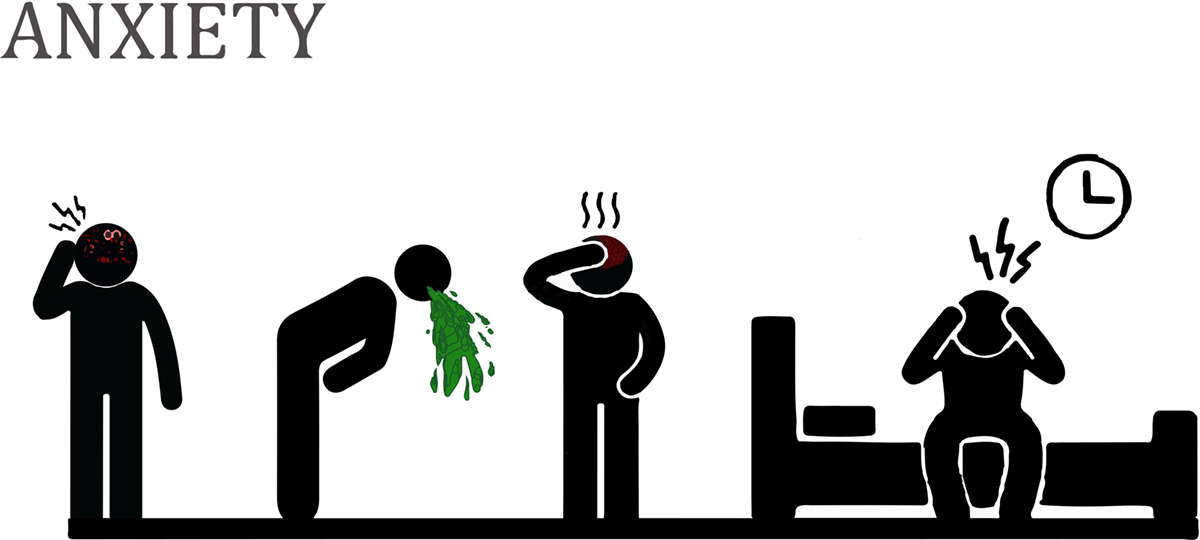
Nervous stomach does not really fall under any specific disease, and it is more of a handle used by doctors to describe an array of stomach problems, mostly indigestion, bloating, gas, cramps and changes in bowel habits.
When a diagnostic test or physical exam fails to reveal a single specific cause of stomach trouble, doctors usually make this diagnosis. It is often observed that these symptoms and ailments have their root in a psychological problem, usually anxiety and stress.
Nervous stomach and anxiety
Stress, nervousness, worrying and anxiety can lead to stomach problems. Everything that goes on in a person’s mind can have its effect on the body. Oftentimes those problems reflect on the digestive tract. The digestive tract can become affected by alternation of opposite emotions, by fear, moodiness, depression, anxiety and other psychological states and disorders.
Some doctors even believe that stress causes increased secretion of stomach juices, which irritates both the walls of the stomach and of the esophagus, mimicking the symptoms of acid reflux.
In addition, it is believed that people who suffer from irritable bowel syndrome are more prone to worry about the issues like health, money, job, relationships and others, and their anxiety and apprehension is in direct correlation with their disorder.
Nervous stomach is something that almost everyone suffers from at least once in their life, in situations that cause nervousness, anxiety, stage fright, peer pressure, academic pressure, and similar. It is like going to a job interview and the stomach starts making funny noises all of a sudden.
Symptoms of nervous stomach
Since nervous stomach is not an actual disease, the symptoms depend on what is causing them and on the extent of the stressor.
The symptoms may include cramps, pain in the stomach or in the lower abdomen, nausea, vomiting, indigestion, acid reflux, bloating, flatulence, diarrhea and constipation. If this problem persists, it can become more severe and include even blood or mucus in stool and chronic abdominal pain.
Treatment for nervous stomach
This problem needs to be approached holistically. This means that certain medications can be taken to relieve certain symptoms, but lifestyle changes are definitely necessary. Reducing the sources of stress is the number one element in the treatment of nervous stomach. If the problem is caused by an emotional or psychological issue, visiting a therapist can be very helpful, if not crucial, for the treatment of nervous stomach.
In cases where a person frequently suffers from nervous stomach, doctors or therapists may even prescribe antidepressants or anti-anxiety drugs.

















Your thoughts on this
Loading...